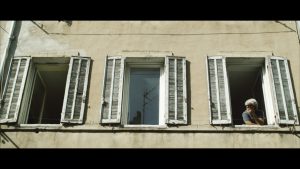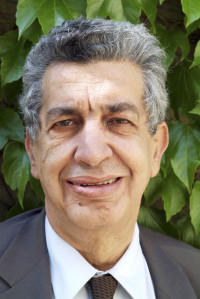70 minutes, 2015
Director: Samuele PELLECCHIA (Italy)
Production: Prospekt Photographers (Italy), Università di Cagliari (Italy)

Soon online an extract of the film
What is a city and how does it evolve? An Italian geographer arrives in Marseille to research one of Europe’s largest urban regeneration projects of recent decades: the Euro-Mediterranean project.
He stays in the Belle de Mai, a working class district close to the project. Simply living in this area, the ordinary practices and everyday life he witnesses turn his certainties upside down.
Looking at Marseille from this little world, conceptual categories and interpretive models prove both ineffective and useless. Because urban space is ultimately the result of the complex relationship between desires, dreams, debates, practices and limitations – it also depends on each individual observer.
MURAT – Multiplicity Urban Representational Amazing Theory is the collective name for everyone who has participated in this film-cum-research.
Samuele PELLECCHIA was born in 1972.
He is the creator of the photographic agency Prospekt and works as a photographer. His work has been published in different magazines such as Newsweek, GQ, Vanity Fair, Private, New York Times, International Herald Tribune and Russian Reporter. He has worked on photographic projects and publications sponsored by international institutions, NGO’s and foundations.
Since 2010 he has also made videos as director and producer.
His first webdoc “The iron curtain diaries” was selected at Amsterdam’s Idfa, at the Prix France 24-RFI for web-documentaries, at Visa pour l’Image 2009 and at the Festival des 4 Écrans in Paris.
In 2011, his project “Close To Me” was selected for the Nuit de l’Année at the Rencontres d’Arles. As a producer he won first prize at the 2012 Rome International Film Festival, the Prospettive per l’Italia, for Luca Ferrari’s “Pezzi”.
 ANTOINE SFEIR
ANTOINE SFEIR